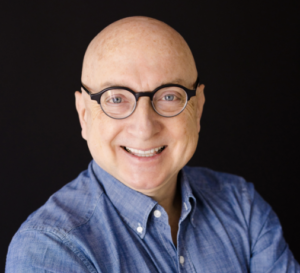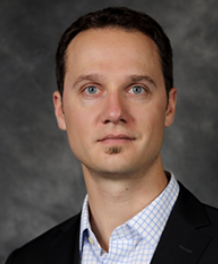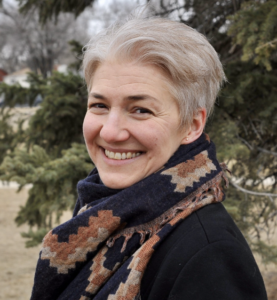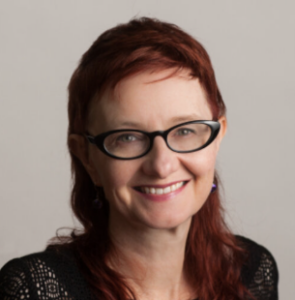2025 Massage Therapy Summit
Join us for 4 great webinars that will inform your practice, challenge your thinking and leave you wanting more!
4 full hours of evidence-informed webinars for one low, all-inclusive price! Whether you are able to stay for 1 live presentation or all 4 – Don’t worry. Registrants will have access to a recording of each presentation until the end of this year!
Date: October 20th – to kick off Massage Therapy Awareness Week!
Time: 9:30am – 3:00pm
Venue: Zoom (watch from wherever you are)
Schedule:
9:30 am
 Walter Fritz presents – Incorporating Shared Decision Making into the Therapeutic Relationship
Walter Fritz presents – Incorporating Shared Decision Making into the Therapeutic Relationship
Shared decision-making involves reassessing our role in the therapeutic relationship. Though most are taught in a tiered learning method, where each CE class we take adds knowledge on evaluation and treatment, it also tends to leave us feeling like the expert in solving another person’s problems. While it is true that our knowledge improves, it often comes at a price: patients defer to us to make their decisions. What I propose is leveling the playing field by not giving up what we know and have learned, but tempering those beliefs with an empowerment of the patient in sharing in evaluation and treatment decisions.
Walt Fritz has evolved from traditionally taught tissue-based approaches into a unique interpretation of manual therapy. This approach advances views of causation and impact from historical tissue-specific models into a multifactorial narrative, leaning heavily on biopsychosocial influences. He emphasizes patient input as a critical driver, balancing clinical expertise and knowledge with patient-driven feedback as core aspects of his approach. Walt presents his workshops internationally and maintains a physical therapy practice in Upstate, New York.
10:45 am
 Dr. Timothy Wideman presents – Suffering: Getting to the Heart of the Pain Problem
Dr. Timothy Wideman presents – Suffering: Getting to the Heart of the Pain Problem
Chronic pain is one of the most prevalent and costly health conditions. For many people, the most challenging aspect of living with chronic pain is that it causes considerable personal suffering. Yet, researchers and clinicians lack basic resources to help recognize, understand and target suffering that is caused by pain, or pain-related suffering. This presentation aims to review what we know, and don’t yet know, about pain-related suffering and then to offer reflections on directions for future research and practice. A core defining aspect of pain-related suffering is disruption to one’s sense of self. This can involve pain disrupting one’s self-identity, such as when pain undermines engagement in important life domains (work, family, social life). This can also involve pain disrupting one’s capacity to navigate basic functions of daily life, such as control over one’s thoughts, emotions or actions. Understanding these different modes of self-disruption is expected to be a vital key to recognizing suffering among people living with chronic pain. The presentation will explore how pain-related suffering can be situated within our broader understanding of pain, as well as clinical implications for clinical care.
Dr. Wideman is a physiotherapist and associate professor at McGill University. The overarching goal of his work is to improve the clinical care offered to people living with persistent pain. He has aimed to cultivate a comprehensive perspective on pain throughout his training and clinical experience. He completed his entry-level physiotherapy training in 2003 and has practiced across a range of clinical settings, including homecare, private clinics and multi-disciplinary pain management programs. Driven by his interest in better understanding how psychological and neurophysiological factors relate to pain and disability, he completed his doctoral training in McGill’s experimental psychology program and focused his post-doctoral fellowship on the clinical assessment of pain sensitization. He joined McGill faculty in 2014 and his recent work has focused on developing a conceptual model for clinicians and researchers that aims to better integrate and address the subjective experience of pain within research and practice.
12:30 pm
 Katherine Styrchak presents – Lymphedema: What’s the Big Deal?
Katherine Styrchak presents – Lymphedema: What’s the Big Deal?
This webinar will look at the causes and treatment of lymphedema and lipedema along with management strategies for these conditions. We will discuss the difference between “lymphatic drainage massage” and “lymphedema therapy”. At the end of the hour, RMTs will feel confident in knowing the questions to ask patients with lymphedema and lipedema, when to refer out, where to find a Certified Lymphedema Therapist, and know that it’s ok to shift gears during a massage and still give an effective treatment.
Katherine has been an RMT since 1994 and became a Certified Lymphedema Therapist in 2010. For the past 12 years Katherine has been working at the Breast Health Centre helping women manage their lymphedema. Several times per year, she hosts online Lunch & Learns for patients or health care providers on topics such as: Lymphedema: Back to Basics; Axillary Web Syndrome: A Pain in the Armpit; and Radiation-induced fibrosis. She also runs an exercise program for patients with breast cancer-related lymphedema in coordination with the Wellness Centre. When not working, she can be found with friends and family on skis or in a canoe.
1:45pm
 Dr. Monica Noy presents – Three Strategies to Keep on Top of Pain Knowledge
Dr. Monica Noy presents – Three Strategies to Keep on Top of Pain Knowledge
Pain is one of the most common reasons a person will seek help from a healthcare provider. At the same time, significant knowledge and education gaps for pain exist across all healthcare fields. There are a lot of popular pain explainers aimed at MSK professionals that promise improved treatment outcomes that are not being seen, and the information is not based in current mechanistic science. Keeping up to date with pain knowledge, research, and treatment options can be a daunting task. This presentation provides you with an introduction to some of the most current research into pain and pain mechanisms, resources for seeking current pain information and resources and strategies for integrating pain knowledge into practice.
Monica is a Canadian clinician, educator, and independent researcher steadfast in her aim to provide resources and knowledge translation for students and peers regarding pain management and mechanisms. Her research is varied and includes evidence-based practice in osteopathy and massage therapy, the status of osteopathy in Canada, language and semantics in pain care, and creating science-based academic curriculum for musculoskeletal therapists in the area of pain science.
This event will be recorded. All registrants will have access to the recordings until the end of the year! (December 31, 2025)
Zoom Room
4 Core Credits
MTAM Members $119 +GST Non-Members $149 +GST
Monday October 20, 2025 from 9:30am-3pm
A full refund will be given to anyone cancelling 5 or more days before the course start date. A 50% refund will apply to any cancellation between 3 and 6 days before a course. Cancellations made WITHIN 72 hours or no shows will not be refunded.
